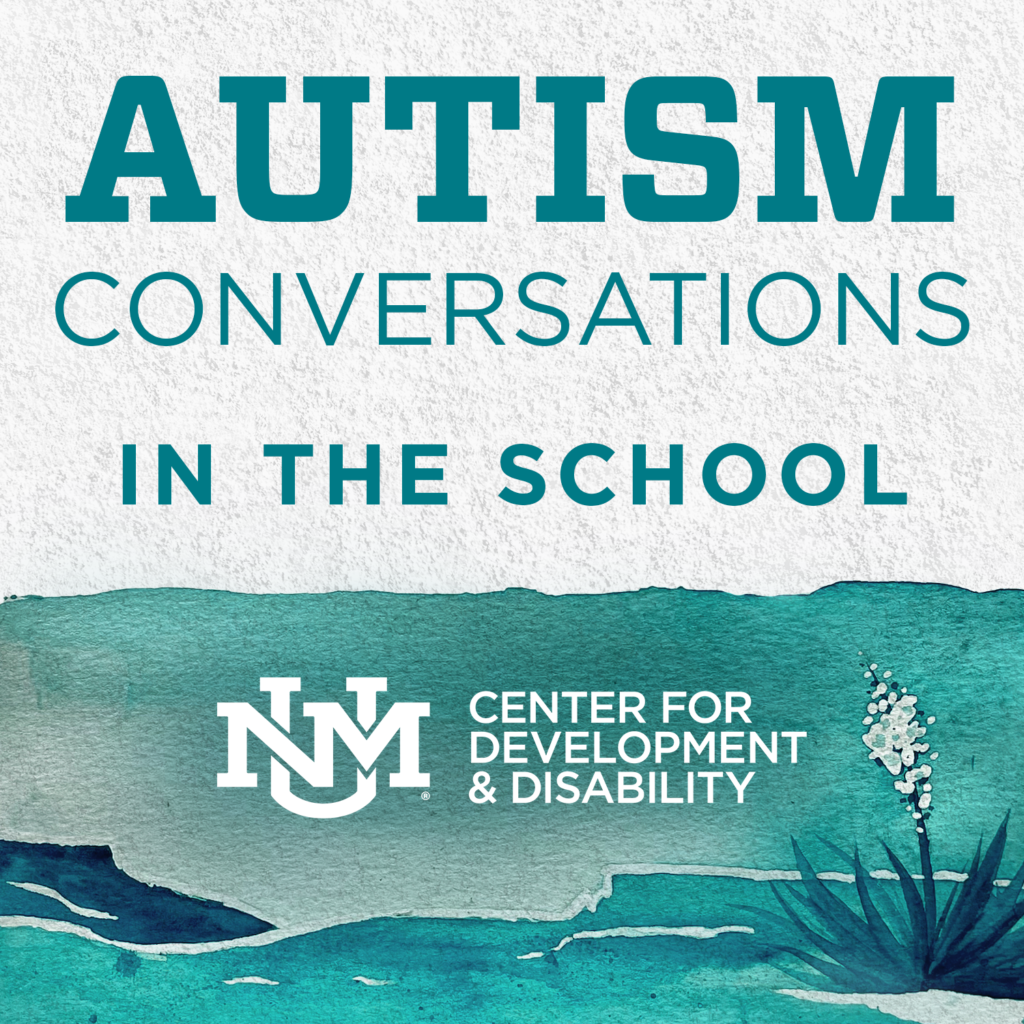Electronic Briefs, Recorded Trainings & Podcasts Developed Specifically for School Based Professionals
All trainings supported by the NM Public Education Department
Online presentations, podcasts, and briefs are designed to supplement direct school-based coaching and technical assistance provided by UNM CDD staff through the NM PED Autism Project (NMAP). NM school districts may register for the NMAP here.
To reach a staff member for more information, please see our Contact Us page.







